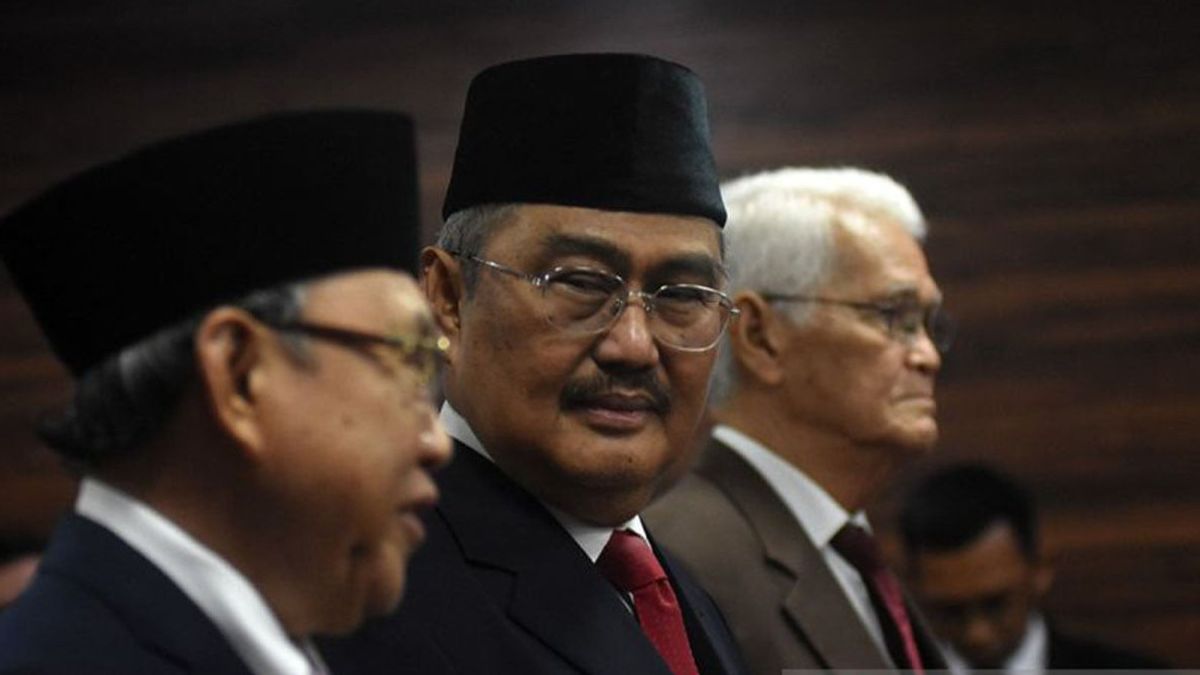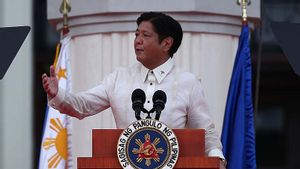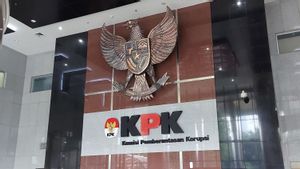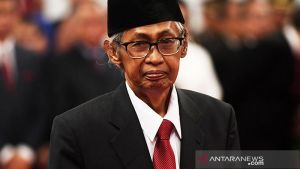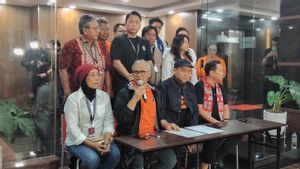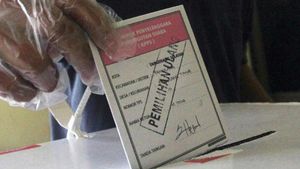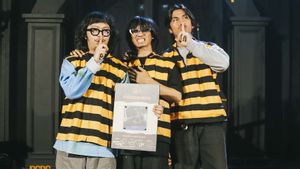JAKARTA - The preparation of legal products is never easy. The preparation of the Law (UU), let alone. There are many inputs and thoughts that influence it. Political matters, for example. Megawati Soekarnoputri's government guarantees it.
Megawati wants an institution to examine the law. The Constitutional Court (MK) was born. Jimly Asshiddiqie was asked as chairman. However, the MK's life was not smooth. The Constitutional Court had no permanent office at the beginning of its power. The Constitutional Court office moved around.
The idea of testing the law is not a new thing. National figures have argued strongly regarding the matter of testing the law at the beginning of Indonesia's independence. This wish so that all kinds of legal products laws - can be tested for their content so that they are in accordance with constitutional norms.
Strengthening politics or the interests of the people. The narrative of testing the law has never found an agreement. Political dynamics is one of the factors. However, everything changed during the reform era. This era made the government begin to perpetuate amendments to the 1945 Constitution.
The Constitutional Court was also adopted into constitutional amendments made by the MPR in 2001. The formula related to the testing of the law is present in the provisions of Article 24 paragraph (2), Article 24C, and Article 7B of the 1945 Constitution as a result of the Third Amendment which was passed on November 9, 2001.
President Megawati was worried and impatient. He wanted the Constitutional Court to resolve disputes in the election. The most important thing is that the Constitutional Court can be a medium that tests the law. The government considers that the Constitutional Court can make the laws that are discussed by the DPR can be perpetuated with constitutional norms.
Everything is perpetuated so that the laws that are present do not deviate from what the 1945 Constitution aspires to. The Constitutional Court Bill was also prepared. Even though the government also gets criticism here and there.
The results were brilliant. The DPR and the government approved Law Number 24 of 2003 concerning the Constitutional Court on August 13, 2003 and was ratified by the President. The presence of the Law then became the basis for the Constitutional Court which was officially formed on August 16, 2003.
VOIR éGALEMENT:
The President's concern in the letter stated that the Constitutional Court as a judicial institution would take political functions. For example, the authority of the Court in deciding cases of alleged violations of the constitution committed by the President. In the eyes of the President, solving problems like this is more of a political process than a legal process.
Also, it is feared that the Court's competence in the review of the law will present a political nuance, both in the process and in the final result. In the end, President Megawati suggested that the Constitutional Court's authority be realized in stages. In the early stages, this institution has the competence to examine and decide cases that arise due to the interpretation of the Constitution in state life, "is written in a Tempo Magazine report entitled Golankaik Amanat Megawati (2003).
The presence of the Constitutional Court was greeted with great fanfare. The people of Indonesia also have the hope of suing when there is a law that is politically charged. Moreover, the law has many disadvantages, rather than benefits. This trust is because the Constitutional Court was directly commanded by one of Indonesia's best constitutional law experts, Jimly Asshiddiqie.
Jimly's leadership is respected by many parties. Even though the Constitutional Court is still lacking here and there. Office matters still don't have one. In fact, all kinds of lawsuits began to enter the Constitutional Court. Jimly then moved quickly. He had proposed a room rent at the Santika Petamburan Hotel, West Jakarta.
The Constitutional Court had an office at the hotel shortly. This is because Jimly suggested that the temporary office must be quite large and wide. This step was taken so that the MK activities can be maximized. The Plaza Centris building, Jakarta was chosen. However, the place for the needs of the trial is perpetuated not only in one place. Alias, different.
Sometimes the trial building is perpetuated in a room at the National Police Headquarters. Sometimes to the room on Radio of the Republic of Indonesia (RRI). This condition was perpetuated with joy. The Constitutional Court can only really occupy its own offices and trials in 2004.
Even for office needs, the Constitutional Court initially had to rent a room at the Santika Hotel in the Petamburan area, Jakarta. Next, the Constitutional Court has a temporary office at the Plaza Centris Building, Jalan HR Rasuna Said, Kuningan, Jakarta. For trial needs, the Constitutional Court borrowed the Nusantara IV Building (Pustaka Loka) DPR/MPR RI Complex, one of the rooms at the National Police Headquarters, and also one of the rooms at the Radio Station of the Republic of Indonesia (RRI).
"Only in 2004 the Constitutional Court was able to get a representative office and trial room after occupying a building belonging to the Ministry of Communication and Information (Kominfo) located on Jalan Medan Merdeka Barat Number 7, Central Jakarta," said Sidik Pramono in the 60th anniversary of Jimmy Asshiddiqie: Sosok, Kiprah, and Thoughts (2016).
The English, Chinese, Japanese, Arabic, and French versions are automatically generated by the AI. So there may still be inaccuracies in translating, please always see Indonesian as our main language. (system supported by DigitalSiber.id)
